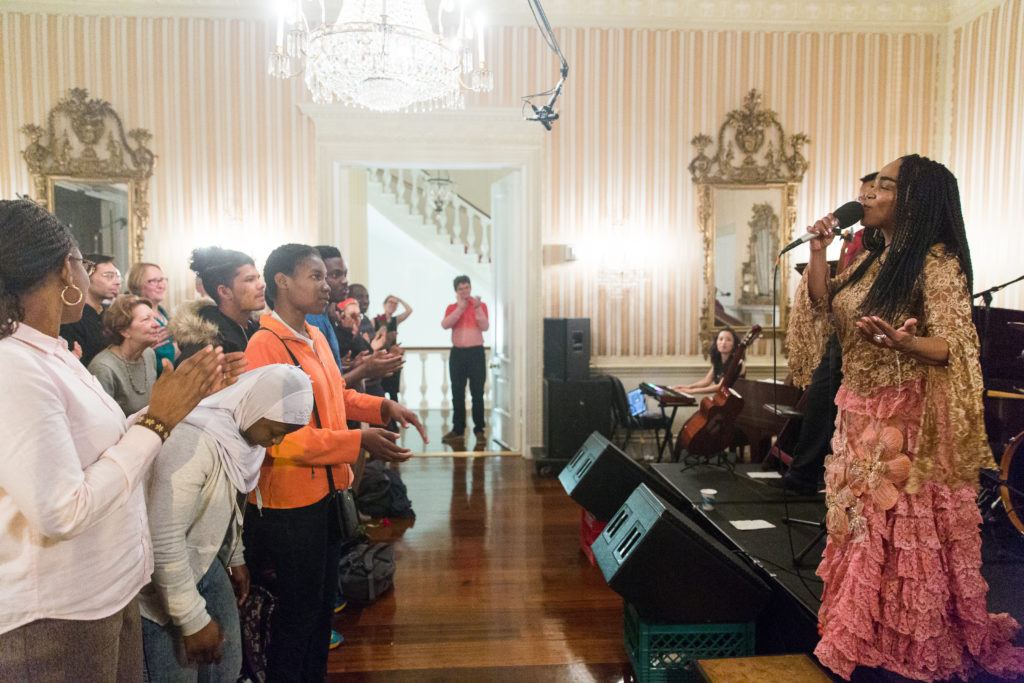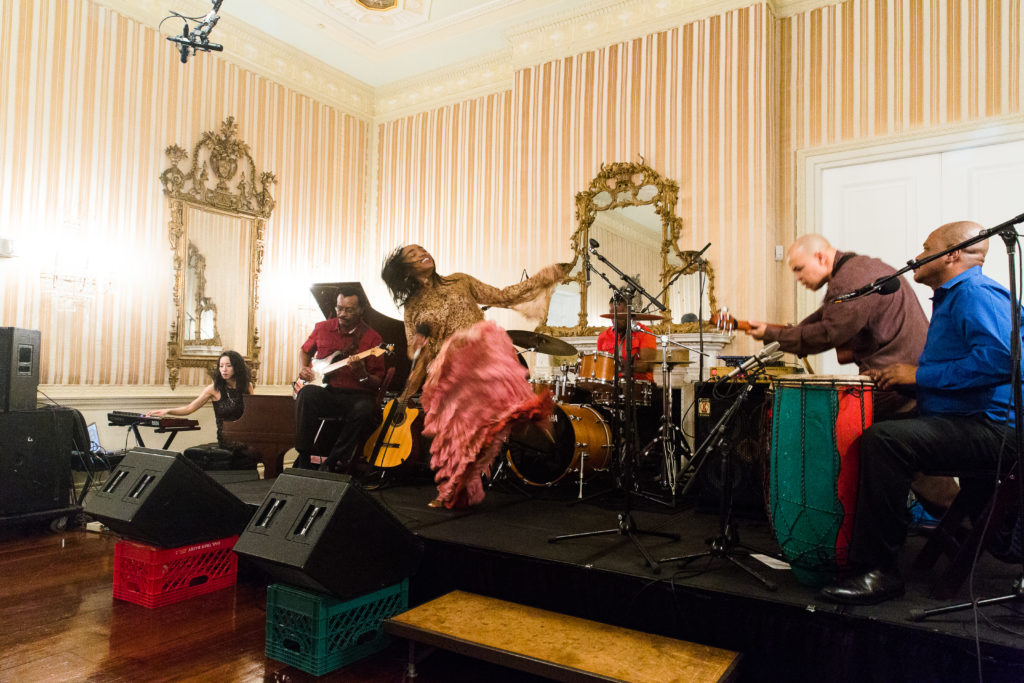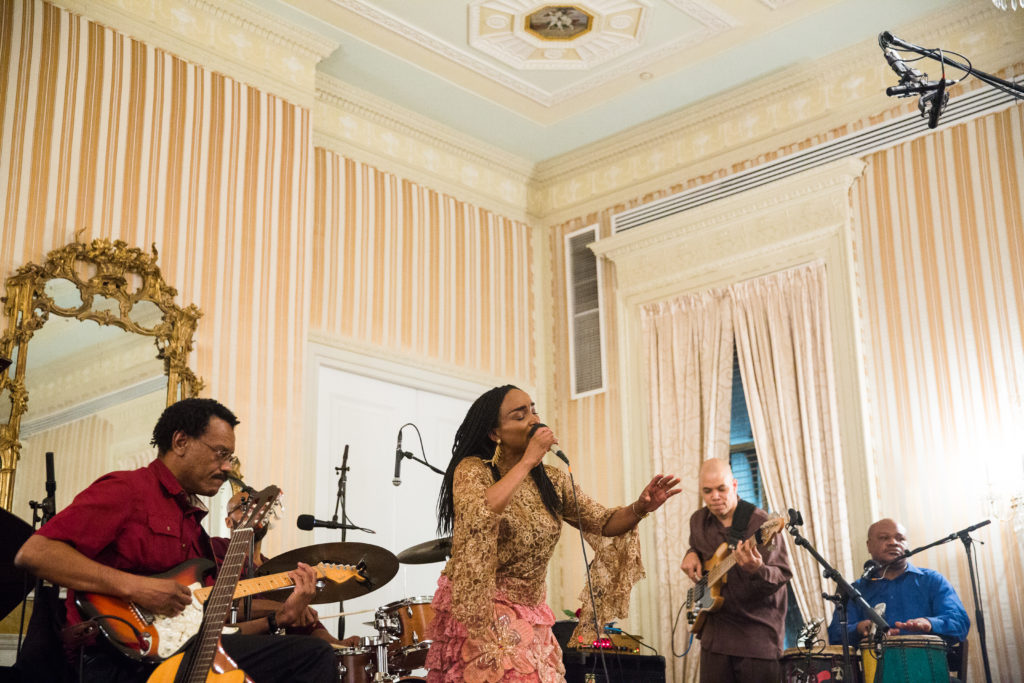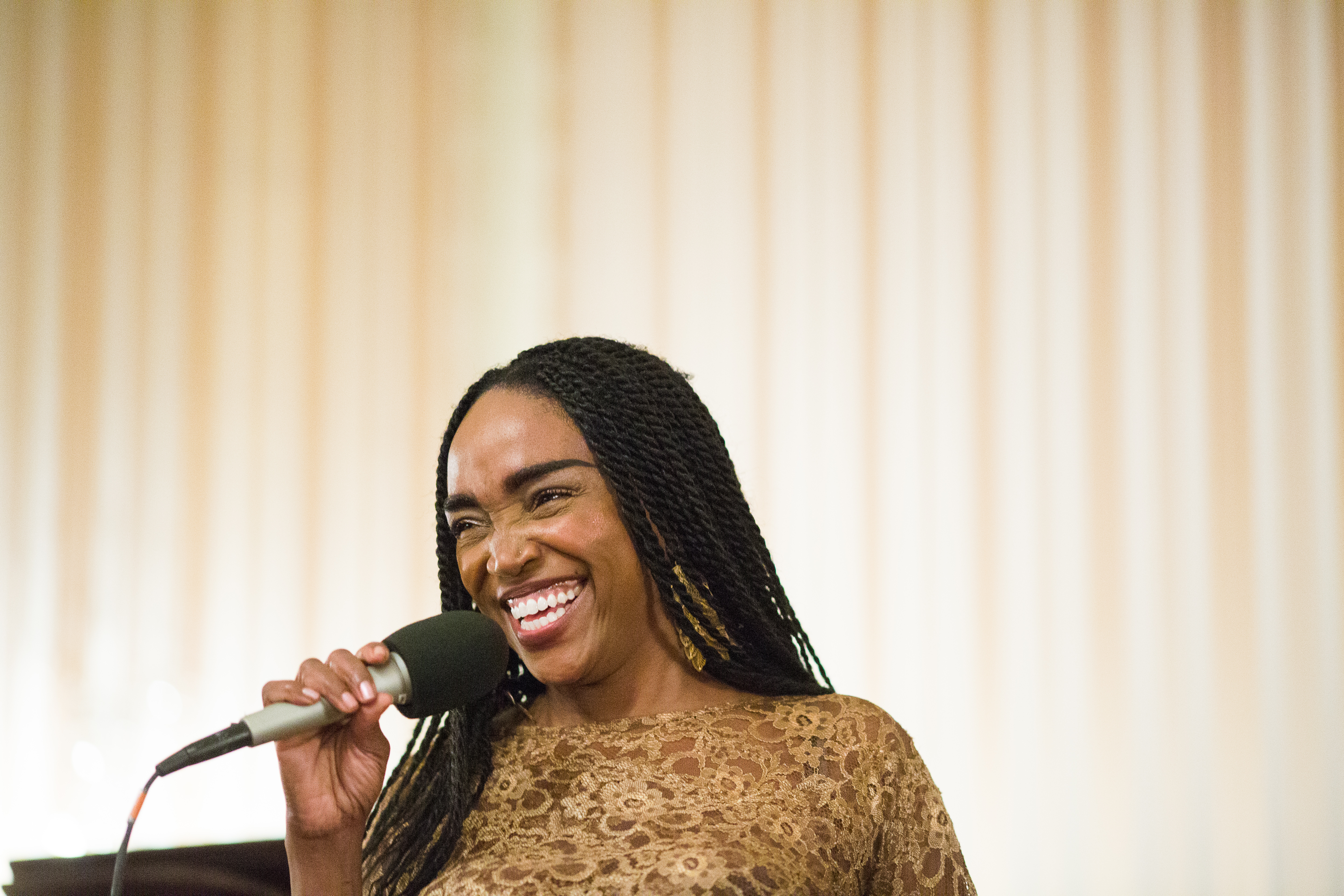All photos by Nicolas Manassi/Roey Yohai Photography for Americas Society
Emeline Michel is known as the "Queen of Haitian Song," and just like any good queen mother, she knows how to bring people from various backgrounds together. In a special Valentine's Day appearance, Emeline set the cozy performance space at the Americas Society on fire with her strong and agile voice, responsive bandmates, skilled dance moves and dynamic song list. She sang for lovers, victims of the earthquake that struck Haiti in 2010, lovers of jazz, lovers of Haitian compas and rara, dancers, singers, poets, storytellers, and those concerned for humanity.
Many of the songs she performed on Feb. 13 were from her latest album, Quintessence, which is also her 10th album to date. In this recording, she shows her reverence for storytelling and love affair with good literature by collaborating with celebrated Haitian author Edwidge Danticat. Michel is on the move for a short East Coast tour, but before she left New York for her next stop in Pennsylvania she spoke with Afropop's Akornefa Akyea about collaborating with various writers for this album, her work as a Red Cross Ambassador, and love of books.

Akornefa Akyea: First of all, it was so wonderful getting to see you perform yesterday. It was really lovely and so fun.
Emeline Michel: I’m so delighted, thank you!
I wanted to find out how it is for you performing in cozier spaces like the Americas Society. With the music you play, it encourages people to get up and dance and move around a little bit. You were dancing and it was still very lively, but how is that for you performing there?
Well, I try to always be very flexible with elements around me and the intimate setting. Of course I didn’t realize how intimate it was going to be so I switched things around. I have a band that are really fantastic musicians but at the same time they are really open to changes so I had to switch the song list because I realized it would have to be an acoustic set. Very acoustic and bare minimal. It’s really about making it happen. For me, sometimes when you are outdoors with 10,000 people versus inside like that it calls for a different atmosphere. I enjoyed it all the same. I just couldn't have people jumping. If you really want to have a party and boogie down, that’s not the exact scenario. But I enjoyed it. And I think the interaction was important. That’s what music is about at the end of the day.

Your music is so flexible. You play in so many different styles that it really does works in virtually any space. I was wondering how you came to this very unique style in this album, Quintessence. What was the inspiration for this acoustic style and paring down of your sound?
Oh that’s one of my favorite questions. Thank you for asking! I think it was the adventure. I am a reader. I love reading and I admire great poetry and I have so many wonderful, wonderful people in my country that, you know, I went to their book like a lover! [Laughs] I get in bed, and cuddle up and then I don’t want to go anywhere. Edwidge Danticat is one of them. Of course, I’ve always wanted to collaborate with her and it was to my surprise that I went to her and she responded sometime in May, and she was like "O.K., yeah, but let me know what you want to talk about." And I said, "Listen, [the 2010 earthquake] was a painful event. I’m sending you my first verse and you do whatever you want with it." And it’s really about making, because it's a right to have a memory. It’s important to not forget it although the pain is there with the earthquake in Haiti. And then that was the first one that was written. And after that I had other wonderful, brilliant writers from Haiti. I wanted this to be literature in song. And frankly when I started it, I knew it was going to be challenging but everything flowed. It took me a long time because I wanted everything to be warm on your face, not so much the type of work that I have typically done before. And so far so good. The response to it and the fact that it’s really an album that you just get inside and you get a glass of wine and then you listen to it. And I am so glad you’re receiving it.

I was listening to "Timoun" before the concert and I was so excited when you started to play it! Can I ask who are the children are singing on that record?
They are from an orphanage in Haiti. I do a lot of work like that where I just surprise them, come down and sometimes we write music and we sing together. And then there were a lot of great vocalists coming out of Pere Jean [the orphanage]. They were looking forward to being in the video. You know, we had a lot working creating either video or movie. Whatever it is, when you are in Haiti, it is really a humongous amount of work. But they were excited, behind the mic, they knew they were going to be on the radio. They were really excited and they have great vocals. So they are from Pere Jean. They are the children that Father Jean took care of and brought them to the studio for me.









